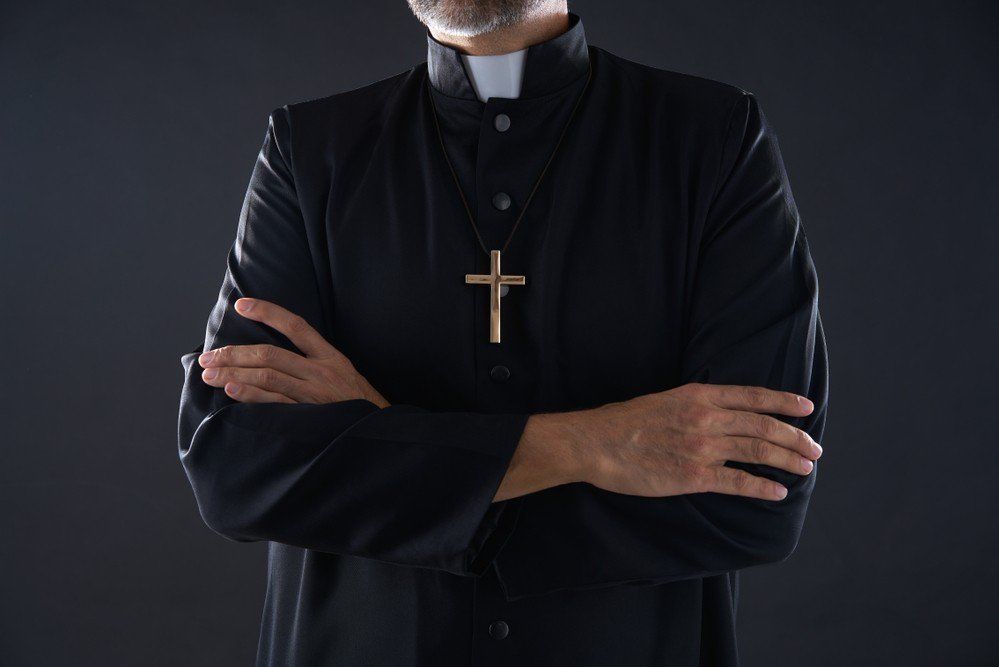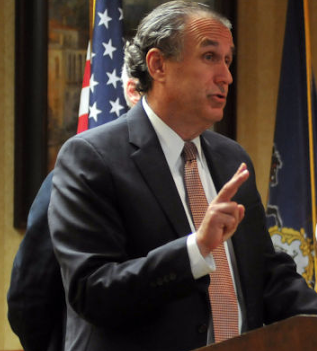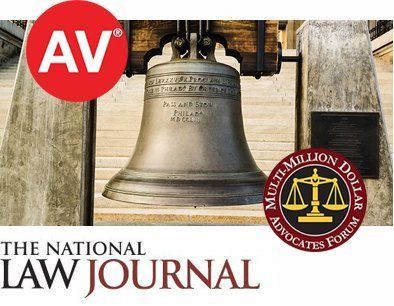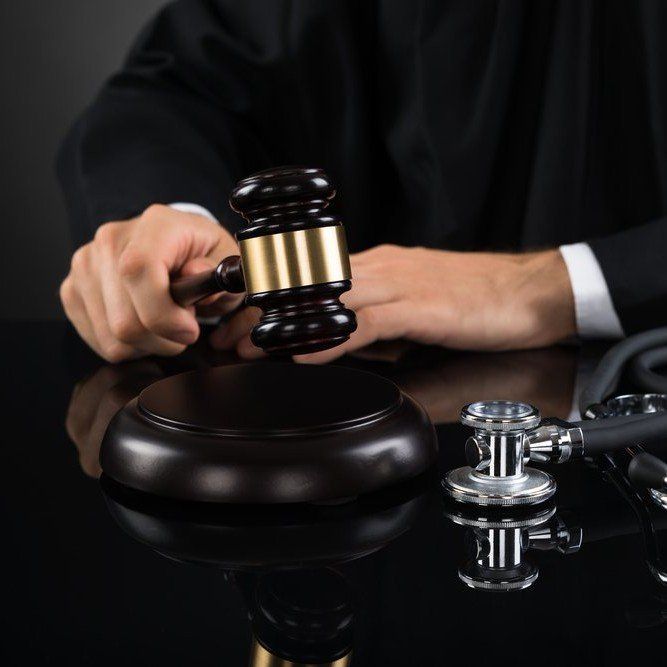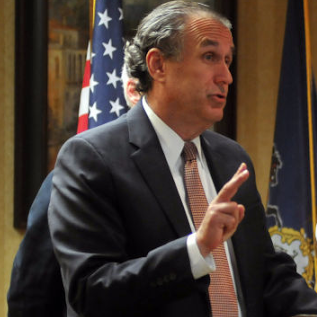Making a sexual any abuse claim -- even one about a member of the clergy -- is gut wrenching and requires a team of attorneys that understand and empathize what a victim has been through. Lawyers like Alvin F. de Levie
have both the compassion and the courtroom experience to help sexual abuse victims work their way through the process of seeking fair and just compensation.
In the aftermath of Pennsylvania's grand jury report, all parties - survivors, lawmakers, and Catholic bishops - agree on one important aspect: There needs to be a reformation of the statute of limitations for sex-abuse crimes.
However, the bishops and numerous survivors have come to a standstill regarding another issue: What is the best acceptable form of justice to all involved?
In the grand jury report,
there was blame placed on the hierarchy of the Church for covering up the sexual abuse that 300 predatory priests carried out on more than a thousand children throughout seven decades. The report also put the blame on the leadership of the Church for prohibiting abuse victims from turning to the American justice system for support.
On Sept. 25th, the Pennsylvania House of Representatives passed a reform bill on the statute-of-limitations that extends the time limit on sexual abuse civil claims from 30 years to 50. Furthermore, the bill also eliminated criminal case statute of limitations.
The Pennsylvania Catholic Bishops' Alternative Mechanism
The bishops opposed the statute, stating that creating such a time-limited window lifting the civil statute dismantling the civil statute of limitations would cause problems for the Church. Such as potentially leading to diocesan bankruptcy, crippling or even causing some existing social services and ministries to close, and stripping the diocese of its resources in order to provide healing and compensation to the victims.
For those reasons, the Pennsylvania Catholic bishops made a proposal of this alternative mechanism: an independent committee-administered voluntary compensation fund. The committee would contain qualified specialists with no ties to the Church, who would judge the claims and compensation amounts. In addition, this compensation fund would also eliminate the ordeal of litigation for victims if they chose to do so.
Archdiocese' Plan To Compensate Abuse Survivors
Recently, the Archdiocese of Philadelphia revealed their new plans of the compensation fund for sexual abuse victims and sent out letters to over 300 victims who have all proven to be credible.
The archdiocese set up the independent program as a way to compensate the childhood sex-abuse victims under the responsibility of the archdiocesan clergy, no matter when the incident occurred.
Administrators have stressed that this program is independent and purely voluntary and that there are no caps on the financial rewards. However, there is one condition that must be abided by the victims - they must waive their rights to ever pursuing any legal action against the church now or at any point in the future in the United States.
This special compensation committee was established following the grand jury report from last summer which outlined the details of over 1,000 children who were abused by more than 300 priests outside of the city of Philadelphia in six dioceses over the period of decades. In response, the grand jury made the recommendation that legislators extend a two-year window to victims allowing them to file civil suits for the decades-old abuse. This move was passed by the House of Representatives, but the state Senate brought it to a halt. Furthermore, the Church also opposed the move.
As a solution, the Archdiocese of Philadelphia recently announced the creation of the Independent Reconciliation and Reparations Program (IRRP).
Since the creation of the Office for Child and Youth Protection
fifteen years ago, the Archdiocese of Philadelphia has spent upwards of $18 million providing care and resources to abuse victims.
The Archdiocese of Philadelphia was also center of grand jury investigations back in 2005 and 2011, which uncovered similar sexual abuse patterns in childhood victims. Following that Philadelphia investigation and in the recent grand jury report involving the additional six Pennsylvania dioceses, the outcomes were closely similar. In both cases, the priests were identified as sexual predators - and in addition, the church leaders were determined by the grand jury to have been involved with covering up the abuse.
The program's administrators revealed that a package of information which included applications was sent to the Archdiocese's 342 identified victims.
Affected victims are encouraged to complete the applications provided on the IRRP website to submit a claim. Victim Support Facilitator, Lynn Shiner, will also be able to help clergy abuse
victims submit their claims if they choose to ask for assistance.
Respecting Victims Of
Sexual Assault
Following the outcome of the Pennsylvania grand jury report, it's extremely important to know that victims of sexual assault deserve the utmost respect while going through their healing process.
Victim privacy will always be a basic need, and if a victim wishes to remain anonymous, their identity should be protected at all costs.
This is why it's common practice for media professionals to refrain from providing victims' names - unless, of course, they have been given permission to do so.
By keeping the names of sexual abuse victims private, it protects them from any further reoccurrence of victimization that can present itself if they lose control over their story and or identity.
Common Behaviors In
Sexual Assault Victims
It is not unheard of for survivors of sexual abuse to initially deny any occurrence of abuse. This is usually due to the feelings of humiliation and shame that victims can sometimes experience following an attack. This can result in the victim feeling isolated and alone.
And, with childhood abuse victims, they can especially feel like outcasts after seeing their young counterparts lead normal, unaffected lives. This feeling can lead to victims feeling ashamed and may remain silent about their abuse for years, and even decades - which can lead to long-term effects on their mental health.
It's found that many survivors of childhood abuse may wait until their adult years to ever share their secret. This can especially be the case with male victims, as they may fear that their abusive past may have something to do with their own sexuality - or, worry that others might be under that impression.
Due to all the shameful feelings associated with child sexual abuse, it is a typical - even normal, response for victims to delay reporting their abuse to authorities.
Victims of child sexual abuse can sometimes feel terrified for their story to get out, or scared that they won't be believed. There are many overwhelming feelings that can leave victims with an internal battle over whether or not they should report their abuse, which can go on for many years.
It's also important to remember that child victims can often feel confused about the sexual abuse they have endured. And, their abuser may have even used fun activities to form a bond and initiate the sexual activity, which can confuse the child even more.
And, in some cases, childhood victims may even continue to have a relationship with the person who abused them despite the sexual activity - which can also cause them to have conflicting emotions.
The continued relationship can be the result of the victim's parents not knowing about the child abuse despite the child not wanting to see their abuser or the victim may even have a special bond with their abuser - especially if they are a family member or close friend.
Mixed Recollection of
Sexual Abuse
With some child sexual abuse victims, their recollection of events may change over time. This is because their knowledge and experience evolve as they get older, and they develop a different understanding of the incident.
Throughout the duration of their lives, they may handle their abuse in different ways. Adult survivors might initially flat out deny the abuse, or choose to bury their stories.
But, no matter if their story changes, they choose to not speak of the events, been involved with accidents,
suffered from substance abuse or eating disorders, etc. - it does not mean that the victim is not credible or that the abuse never occurred.
The Abuse Is Never The Victim's Fault
It is not uncommon for victims to find themselves frozen and unable to fight off their abuser using physical force.
In fact, most humans tend to freeze when in danger or facing an imminent threat, as opposed to fleeing or fighting back. This is an inherent biological response that has been discovered not only in humans but many other species as well. In this scenario, the brain commands a part of the body to shut down, as a way to improve chances of survival. But still, the sexual violence survivor may still experience self-blame.
Victims of sexual abuse are never to blame for their assault; the fault is entirely on the abuser. The victim should never have their instinctive response to the incident called into question - no matter if they are a woman, man, teenager, etc.
If you are a victim of sexual violence, you need a personal injury lawyer experienced with the American justice system on your side. Take the first step and call the Law Offices of Alvin F. de Levie
today at 844-777-2529 for a free case evaluation or help seeking a resource center for clergy abuse.























